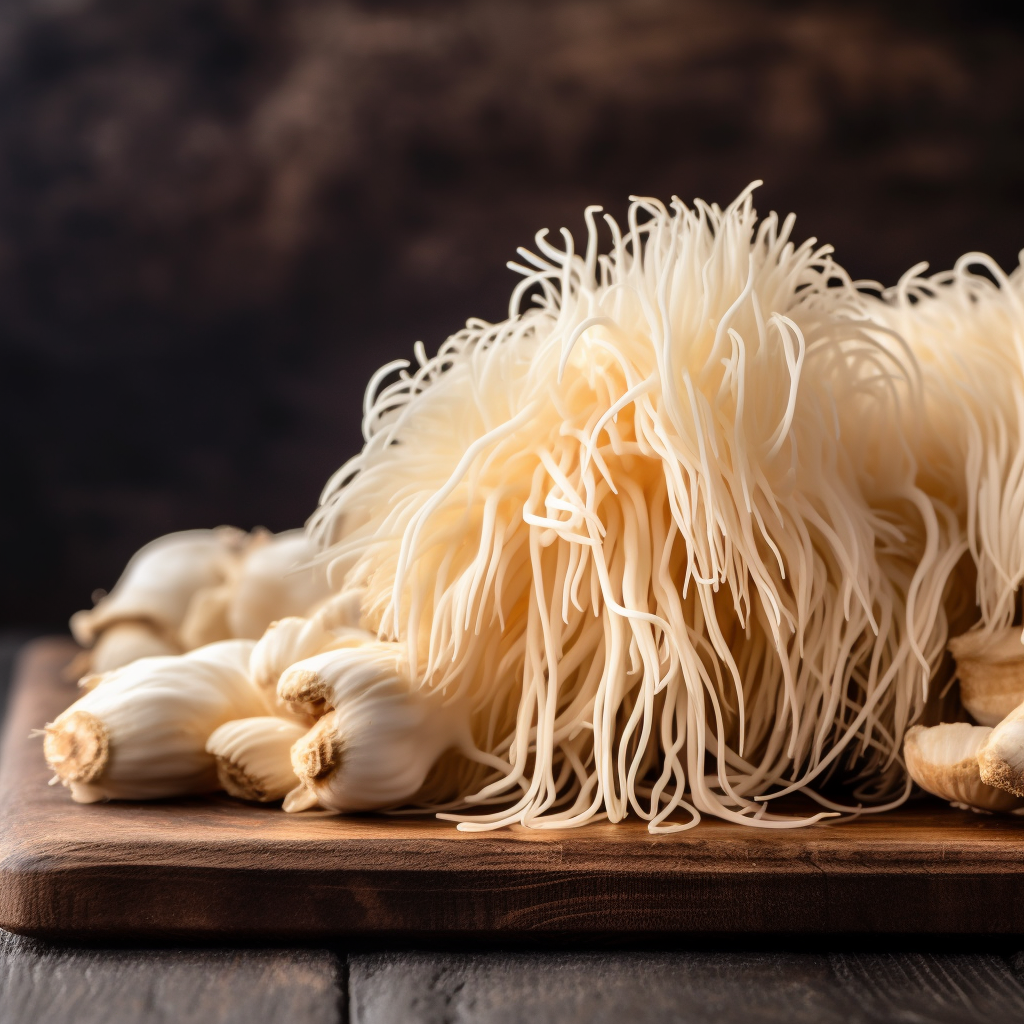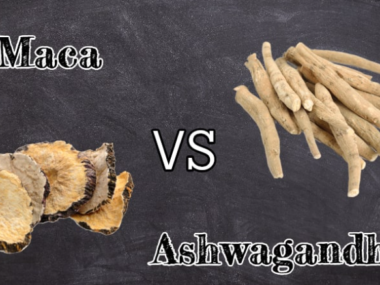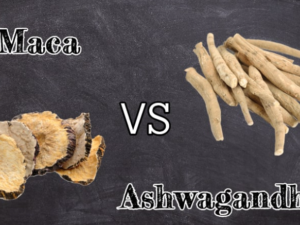Mushrooms have been a staple in traditional medicine for centuries, touted for their therapeutic properties and nutritional benefits. One such mushroom that has gained popularity in recent times is Lion’s Mane Mushroom. With its unique appearance resembling the mane of a lion, this mushroom packs powerful health-promoting compounds that are known to enhance cognitive function, boost immunity, and support overall well-being. In this article, we delve into the depths of Lion’s Mane Mushroom to explore its unparalleled health benefits from brain health to immune support. Continue reading to discover the myriad of natural remedies that can be unlocked for your mind and body by this powerful fungus.
The Origins and History of Lion’s Mane Mushroom in Traditional Medicine
Lion’s Mane Mushroom, also known as Hericium Erinaceus, has been a valuable ingredient in traditional chinese medicine for centuries. The mushroom is native to Asia, Europe and North America and has been used in alternative healing practices for its restorative properties on the liver, heart and stomach ailments. In Chinese medicine specifically, it has been utilized to treat digestive issues such as ulcers.
The first recorded usage of Lion’s Mane Mushroom was in China during the Han Dynasty (206 BCE – 220 CE) where it was valued as both a food source and medicinal remedy. It was believed that consuming the mushroom had anti-inflammatory effects ranging from reducing fevers to calming inflammation within the body. Today research suggests Lion’s Mane Mushroom may have many benefits including stimulating nerve regeneration which can help with cognitive function or memory loss associated with age-related diseases like dementia or Alzheimer’s disease making this an increasingly popular choice among those seeking natural remedies to improve their health.
The Science Behind Lion’s Mane Mushroom: Understanding its Active Compounds
Lion’s Mane Mushroom is a highly esteemed medicinal mushroom known for its numerous health benefits. The scientific community has been studying this unique mushroom on animal studies and the active compounds that make it so effective against various ailments. One prominent group of compounds present in Lion’s Mane Mushrooms are called beta-glucans, which have potent immune-boosting properties. They work by stimulating the production of white blood cells to fight off infections and inflammation.
Another active compound found in Lion’s Mane Mushroom is hericenones and erinacines, which have been shown to enhance cognitive function by promoting nerve growth factor (NGF) synthesis in the brain. NGF is responsible for maintaining healthy neurons in our central nervous system, leading to improved memory recall, learning skills, mood regulation as well as reducing signs of depression and anxiety disorders among other things. These therapeutic effects make Lion’s Mane Mushroom dosage one of the most promising natural remedies for treating age-related decline such as dementia or Alzheimer’s disease symptoms.
Overall, understanding the science behind these powerful compounds helps us appreciate why Lion’s Mane Mushroom dietary supplement continues becoming an increasingly popular supplement for both mental and physical health worldwide. Its adaptogenic benefits could help support anyone aiming to improve their overall sense of wellbeing while seeking a more holistic approach when dealing with specific health issues naturally (*please note: please do not take supplements without consulting your healthcare provider beforehand).
Enhancing Cognitive Function: How Lion’s Mane Mushroom Supports Brain Health
Lion’s Mane Mushroom is known for its ability to support brain health by enhancing cognitive function. This mushroom contains a number of bioactive compounds, including erinacines and hericenones, that have been shown to stimulate the growth of nerve cells in the brain. These compounds also support the production of nerve growth factors (NGFs), which are essential for maintaining healthy neurons and promoting memory and learning.
In addition to supporting brain health, Lion’s Mane Mushroom has number of health benefits, powerful immune-boosting properties . One study found that daily supplementation with this mushroom extract improved immune function in individuals with weakened immunity due to cancer treatments. Other research suggests that Lion’s Mane may help reduce inflammation and oxidative stress throughout the body, further supporting overall health and wellness.
Overall, Lion’s Mane Mushroom is a fascinating natural remedy that offers a range of potential health benefits all within one small but mighty package. Whether you’re looking to boost your cognitive health or enhance your immune system, this unique mushroom might be just what you need to unleash optimal health and wellbeing.
The Link Between Lion’s Mane Mushroom and Neurodegenerative Diseases
Studies show that Lion’s Mane Mushroom could play a crucial role in the prevention and treatment of neurodegenerative disorders such as Alzheimer’s and Parkinson’s disease. As people age, they tend to experience declines in cognitive functioning, memory loss, and reduced mental agility. These changes can cause significant distress and interfere with daily activities. The compounds present in Lion’s Mane Mushrooms have been found to stimulate nerve growth factor (NGF) production, which is essential for maintaining the health of neurons or brain cells.
Furthermore, research has shown that consuming Lion’s Mane mushroom regularly may help protect against memory loss due to aging. A study on older adults demonstrated that regular intake 3 grams/day consumption of dried lions mane mushroom resulted after many months into improved cognitive function scores compared to individuals who consumed placebo pills instead; however further studies are needed before definitive conclusions can be made regarding its effectiveness as an aid for reducing dementia risk.
Lion’s Mane mushroom has numerous potential benefits when it comes to nourishing our minds & bodies; including immune system support, promote neurological functions helps combat depression-anxiety symptoms among other medicinal properties. As more research continues into the potential therapeutic uses of this adaptogenic herb we would benefit greatly from incorporating it into our daily supplements/ meals where possible – while enjoying delicious gastronomic adventures along the way!
Lion’s Mane Mushroom and Nerve Regeneration: A Promising Treatment for Injuries
Lion’s Mane Mushroom is an exciting topic of study in the field of nerve regeneration. Numerous studies have shown that this mushroom has potential as a promising treatment for injuries to the central nervous system, such as those caused by stroke or trauma. This is due to Lion’s Mane Mushroom’s ability to promote nerve growth and repair damaged brain tissue.
One way that Lion’s Mane Mushroom achieves this effect is through its unique composition of bioactive compounds known as polysaccharides. These compounds have been shown to stimulate the production of Nerve Growth Factor (NGF) – a protein essential for neuron survival and function- thereby supporting nerve regeneration.
Furthermore, Lion’s Mane Mushroom also acts as a potent antioxidant and anti-inflammatory agent, which reduces inflammation in injured tissues. In fact, many individuals who suffer from neurological conditions like Alzheimer’s Disease or Multiple Sclerosis have reported significant improvements in cognitive function after taking regular doses of Lion’s mane supplements.
In conclusion, given its several beneficial effects on brain health coupled with its low toxicity profile makes Lions’ mane mushroom extract supplementation worth looking into accordingly especially those suffering from traumatic injury or neurodegenerative disorder may very well benefit from it.
The Immune Boosting Properties of Lion’s Mane Mushroom
Lion’s Mane Mushroom, also known as Hericium erinaceus, has gained significant attention for its potential to boost the immune system. This mushroom contains polysaccharides and beta-glucans that play a crucial role in strengthening the body’s defense mechanism against infections and diseases. Studies have shown that these compounds can stimulate the production of white blood cells which are responsible for fighting off harmful pathogens.
Moreover, Lion’s Mane Mushroom has potent antimicrobial properties that help to eliminate harmful bacteria and viruses from the body. Additionally, it contains antioxidants such as ergothioneine and hericenones that protect cells from oxidative damage caused by free radicals. By consuming this medicinal mushroom regularly, individuals can improve their immunity levels while promoting their overall health.
Lion’s Mane Mushroom and Cancer: A Potential Anti-Tumor Agent
New research has started to reveal the potential of Lion’s Mane Mushroom as an anti-tumor agent. The mushroom contains polysaccharides, which have been shown in studies to slow the growth of cancer cells and trigger their death. Additionally, other compounds in Lion’s Mane Mushroom exhibit antioxidant properties that prevent DNA damage and inflammation- factors often linked with cancer development.
The results are promising but still preliminary as most studies have only looked at cell lines or animal models rather than human clinical trials. However, with the constant search for new treatments that will reduce adverse effects while providing more efficacy in treating cancers- Lion’s Mane Mushroom could potentially offer a natural option worth considering alongside standard medical treatment options for those diagnosed with various types of tumors.
The Anti-Inflammatory Effects of Lion’s Mane Mushroom and its Role in Reducing Chronic Disease Risk
Lion’s Mane Mushroom has been found to have anti-inflammatory properties that can help reduce the risk of chronic diseases. Chronic inflammation is a major contributor to many illnesses, including heart disease, cancer, and diabetes. By reducing inflammation in the body, Lion’s Mane Mushroom may help protect against these conditions.
Research has shown that Lion’s Mane Mushroom contains compounds called polysaccharides and beta-glucans that have potent immune-boosting effects. These compounds work by stimulating the production of white blood cells, which play a crucial role in fighting off infections and diseases. Additionally, Lion’s Mane Mushroom has been found to support nerve growth factors in the brain, helping to improve cognitive function and potentially reducing the risk of neurological disorders such as Alzheimer’s disease.
Overall, incorporating Lion’s Mane Mushroom into your diet may have a significant impact on your health. From its ability to fight inflammation to boosting immunity and improving brain health – this powerful mushroom should not be overlooked in terms of its potential therapeutic benefits for our overall well-being.
Gut Health and Digestion: The Benefits of Lion’s Mane Mushroom for the Digestive System
One of the benefits of Lion’s Mane Mushroom that has garnered attention is its potential for improving gut health and digestion. The mushroom contains polysaccharides, specifically beta-glucans, which have been shown to possess prebiotic properties. Prebiotics serve as food for probiotics – beneficial bacteria living in our gut – promoting their growth and helping maintain a healthy balance in our microbiome.
Additionally, Lion’s Mane Mushroom has been observed to possess anti-inflammatory effects, which can aid in reducing inflammation within the digestive tract caused by conditions such as inflammatory bowel disease (IBD) or irritable bowel syndrome (IBS). With its potential to improve microbial diversity and alleviate inflammation in the digestive system, incorporating Lion’s Mane Mushroom into your diet may support overall gastrointestinal health.
Lion’s Mane Mushroom and Cardiovascular Health: A Natural Way to Lower Cholesterol and Blood Pressure
Lion’s Mane Mushroom is known to have an impressive range of health benefits, including cardiovascular support. Studies have shown that Lion’s Mane has the ability to lower both cholesterol and blood pressure levels in the body. High levels of bad (LDL) cholesterol and elevated blood pressure are major risk factors for heart disease, which is the leading cause of death worldwide.
One study published in 2015 found that supplementation with Lion’s Mane Mushroom extract significantly reduced LDL cholesterol levels in mice fed a high-fat diet. Another study conducted on humans showed that taking 3 grams of Lions Mane extract daily for four weeks lowered both systolic and diastolic blood pressure in individuals with high blood pressure.
With these findings comes hope for those looking for natural ways to improve their cardiovascular health without relying solely on medication. Incorporating Lion’s Mane Mushroom into a healthy diet may be a promising way to support overall heart health and reduce the risks associated with cardiovascular diseases.
Managing Diabetes with Lion’s Mane Mushroom: A Holistic Approach
Managing diabetes can be a challenge, but adding Lion’s Mane Mushroom to your holistic approach may help. Studies have revealed that Lion’s Mane Mushroom has properties that regulate glucose levels in the body and prevent diabetic complications. Additionally, this mushroom contains polysaccharides that enhance insulin sensitivity and improve glycemic control.
Beyond its glycemic properties, Lion’s Mane Mushroom is an excellent source of antioxidants and anti-inflammatory compounds. These compounds scavenge free radicals in the body, reducing oxidative stress and inflammation commonly associated with diabetes complications such as retinopathy or neuropathy. By incorporating this mushroom into their diets, diabetics can supplement their traditional therapies with natural protection against secondary disorders.
While managing diabetes requires individualized treatment plans by medical professionals, incorporating healthy foods like Lion’s Mane Mushrooms can offer additional health benefits to those affected by this disease. With further research on-going there are promising potentials for collaborations between western medication treatments alongside more gentle approaches such as herbs which offers potential from various angles all while working towards improving patient outcomes overall.
Skincare Benefits of Lion’s Mane Mushroom: Promoting Healthy Hair and Skin
Lion’s Mane Mushroom has been found to offer numerous skincare benefits, promoting healthy hair and skin. This mushroom is rich in antioxidants that help to protect the body from free radical damage, which can lead to premature aging of the skin. It also contains polysaccharides that aid in cell regeneration and collagen synthesis, leading to improved skin elasticity.
Furthermore, Lion’s Mane Mushroom has been shown to have anti-inflammatory properties that soothe irritated and inflamed skin. It helps reduce inflammation caused by acne or psoriasis while improving overall skin tone and texture. Some studies even suggest that regular consumption of this mushroom may help slow down the formation of wrinkles.
In conclusion, incorporating Lion’s Mane Mushroom into your skincare routine can yield impressive results due to its antioxidant-rich composition, regenerative powers, and anti-inflammatory properties. With reduced inflammation and stimulated cell growth, it promotes healthy hair growth making it ideal for maintaining a radiant complexion at any age.
The Role of Lion’s Mane Mushroom in Managing Anxiety and Depression
Anxiety and depression are prevalent mental health conditions that can severely impact a person’s quality of life. The root causes of these conditions are often complex, but research suggests that inflammation in the brain may play a role. This is where Lion’s Mane Mushroom comes into play – it has anti-inflammatory properties that work to reduce inflammation in the brain, thereby alleviating symptoms of anxiety and depression.
Furthermore, Lion’s Mane Mushroom promotes nerve growth factor (NGF) production in the brain. NGF is essential for promoting neural growth and regeneration, which supports cognitive function and helps manage symptoms of anxiety and depression. The mushroom also contains beta-glucans – compounds known for their immune-boosting properties – which help strengthen the body’s overall immune system and promote better stress management.
In conclusion, incorporating Lion’s Mane Mushroom supplements or extracts into your daily routine can significantly aid in managing symptoms related to anxiety or depression while also ensuring overall physical well-being. It is important to note, however, that you should consult with a healthcare provider before trying any new supplement regimen as some may interfere with existing medications or medical conditions.
How to Incorporate Lion’s Mane Mushroom into Your Diet: Recipes and Suggestions
If you’re looking to incorporate Lion’s Mane Mushroom into your diet, there are numerous recipes and suggestions that can help. One simple way is to saute the mushroom in a little bit of oil and toss it with your favorite pasta dish or stir-fry. This will not only add texture but also provide a nutritional boost.
Another option is to use Lion’s Mane Mushroom as an ingredient in soups or stews. Simply chop the mushroom into small pieces and add it along with other vegetables and seasonings. The unique flavor profile of this mushroom makes it an excellent addition to any dish.
For those who prefer a quick and easy solution, supplements are available in capsule or powder form for daily consumption. Regardless of how you choose to consume Lion’s Mane Mushroom, its health benefits make it worth incorporating into your diet on a regular basis.






